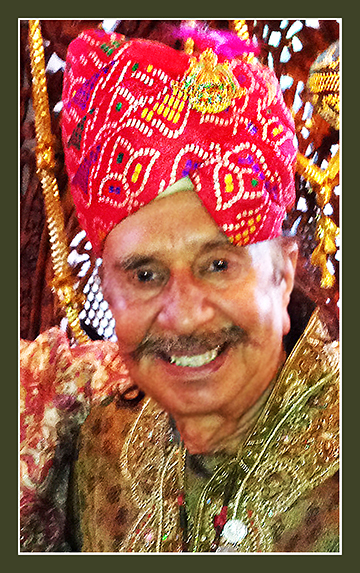
A tribute to Romesh Anand, bridge builderCOFFEE WITH WARREN, with Warren Harbeck |

|
Restaurateur/humanitarian Romesh Anand, 1939–2018, built bridges of goodwill. Photo by Warren Harbeck I concluded last week’s column with the quote, “Let’s do something beautiful for God,” wisdom identified with “Mother Teresa,” Saint Teresa of Calcutta. This week’s column is my tribute to a man from the land of Calcutta who personified that very wisdom in his own life by building beautiful bridges of hope for a more beautiful community. Romesh “Rome” Anand, restaurateur and award-winning builder of bridges among southern Alberta’s diverse faiths and cultures, and especially among the Calgary-area’s South Asian religious communities, passed away on Nov. 7 at the age of 79. This week’s column is my tribute to him. Rome was a familiar face throughout the Bow Valley. The original owner of Jaipur Indian Cuisine Restaurant in Cochrane, and before that, the Omar Khayyam and Rajdoot restaurants in Calgary, he was widely respected for his efforts in promoting inter-community and interfaith understanding and goodwill. I first met Rome in 2010 just prior to his opening the Jaipur. Bridge builder that he was, he had responded most positively to my July 28, 2010 column on the peace and love demonstrated at an interfaith event. Soon thereafter he, a Hindu, invited me, a Christian, to say a blessing at the opening of his new restaurant. We became fast friends. Early on in our friendship I asked him about his passion for building bridges of goodwill. He told me a story I will always associate with this compassionate man. There is a legend in his native India about two peoples who were not enjoying the best relationship with each another, he said. A stone wall of ignorance, suspicion and hate separated them relationally just as surely as the wide expanse of water separated them geographically. How to reconcile the two mortal enemies? A decision was made to build a bridge. That very long bridge of Indian antiquity was built, not with steel and heavy machinery, he said, but by hand, stone by stone, bringing together the two adversaries otherwise isolated by geography and history. For Rome the lesson was obvious: “The same stones used to build walls can be used to build bridges,” he said. “It is up to us to build a wall, or to build a bridge. The choice is ours.” Indeed, over the eight years I was privileged to know Rome in my roles as religious studies scholar, columnist and friend, there could be no doubt about the choice Rome had made. He would be a bridge builder, a calling he excelled at! Some of you no doubt heard him speak at area interfaith conferences in recent years. He delighted in sharing that bridge-building legend. He also gave evidence of his community-affirming virtue by his choice of friends. I witnessed this three years ago at Romesh and his wife Sue’s 50th anniversary celebration. When Mary Anna and I arrived at Rome and Sue’s home, we found ourselves among a houseful of guests, almost all with roots deep in the Indian subcontinent, who, like Rome, have committed themselves as Canadians to building bridges instead of walls. Among the guests was Dr. Brij Sood, a retired surgeon with the honorary Stoney Nakoda name, “Chief Rainbow.” The late Chief Walking Buffalo had given him that name, Dr. Sood told me, after he’d properly diagnosed the globetrotting chief’s massive stroke during the 1966 Banff Indian Days, when others were dismissing him as “just another drunken Indian.” (See my Aug. 27, 2015 column.) And yes, like that surgeon who tuned his listening heart to the real person entrusted to his care, so too Rome built beautiful bridges of goodwill by tuning his heart to the needs of all who joined him at the tables of his life. May your bridge-building example be ever before me, Rome, as I, too, strive to do something beautiful for God. RIP, my friend.
© 2018 Warren Harbeck |